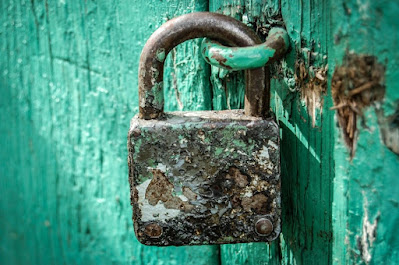Adoptees: 3 Ways to Fight Isolation During Covid Lockdown!
An adoptee knows what loneliness means. Besides, it's challenging to be left home alone with a humongous amount of time to think about life. If you are practising it (and you
should!); COVID-19 self-isolation gives you that kind of mindset since we are
all obliged to stay home with no other human contact or stuck with your
roomy/partner/family.
I am an adoptee in isolation (in a 20mq place with a very chatting boyfriend
and a lovely sometimes extremely annoying cat) and a participant to the
Northwestern University | Social Media Marketing Specialization on Coursera. I
decided to share three simple actions to put in use for this unforeseen - a more
then a month in - situation based on two exciting pieces I’ve read on the
subject.
You might all want to listen to CNN podcast by Chief Medical Correspondent Dr
Sanjay Gupta in conversation with Scott Kelly - US former astronaut who spent
340 days living in a Space Station - advising on how to live confined in
limited space for a long time. Kelly said is good to have a routine - to
schedule work meal and training time; take care of your beloved crew or
roommate[s]; develop a hobby, and to concentrate on what you can control and
try to keep fears away. Of course, if he had to choose between isolation in
space or at home, he would rather his apartment because of standard comfort are
unavailable in Space. In conclusion, he highlights how in this globalized
world, we are deeply connected, for better and for worse. Kelly’s testimony is featured in the article “Living an isolated life: Astronauts, Antarctic doctors and climbers share their advice.” by writer Ashley Strickland on the CNN website.
 |
| Photo description “This is what happens when you leave me inside your home alone with my camera....” on Pxhere (https://bit.ly/2VdtcGx) |
Brent Crane made a great point in “The Virtue of isolation.” article published on The Atlantic where he
pieces together positive and negative aspects of isolation. There are sociologists, psychologists and neuroscientists, who studied the effects of solitude and loneliness who consider solitude to be the cause of anxiety, and
loneliness is the right way to acknowledge and perceive oneself place on
society. Beside other thinkers and philosophers that only see benefits. A common trend in studies says that for isolation to be taken positively, it
needs to be voluntary, and warns about armful side-effects such as depression.
In conclusion, Crane takes after Italian author Tiziano Terzani, which during long moth isolation in Japan - had time to find the time - and produced “A Fortune
Teller Told Me”. Crane says this experience lead Terzani to think that our
inner self is the real master - is the only thing we need to learn and listen
during confinement truly.
Since during COVID, we must endure social distance, alongside World HealthOrganization (WHO) necessary protective measures, I want to share with you three recommendations that have worked from me in this month-long of confinement with
my partner:
• Be active
- Start your day with the right foot and plan your fight
- Sing from the balcony / Italian style when you feel down
- Read a good book
- Read a good book
• Act real
- Chat call or talk with your confined mates and neighbours or other fellow adoptees
- Look at family pictures
- Make peace, if not love
• Reach out
- Focus on your well-being & if you need help, seek it.
(adoption podcasts and adoptee groups can be useful)
- Do not wait for the end to come, ask the questions you always wanted to ask (you'll feel relieved)
- Do what you are keeping yourself from doing
(the more you push things away, the hard them will get back at you)
In other words, to fight isolation set BAR in motion! Enjoy yourself, take the pleasure from little things focus on the present, not on the future - you should
give it a try; I did, and it changed it all for me.
Alessia Petrolito - Born in the U.S. adopted and raised in Northern Italy. She
gained her BFA at the Academy of Fine Arts in Turin, Italy. She lived in
Chicago, where she obtained her MA in Visual and Critical Studies at the School
of the Art Institute of Chicago (SAIC) in 2016. She presented at the 5th ICAR -
International Conference on Adoption Research in New Zealand. She currently
lives in Italy where she is working for a no-profit organization while writing
on her Italian blog (arpadoptic.com) about adoption and other visual metaphors and
taking the Northwestern University | Social
Media Marketing Specialization on
Coursera.



Comments
Post a Comment